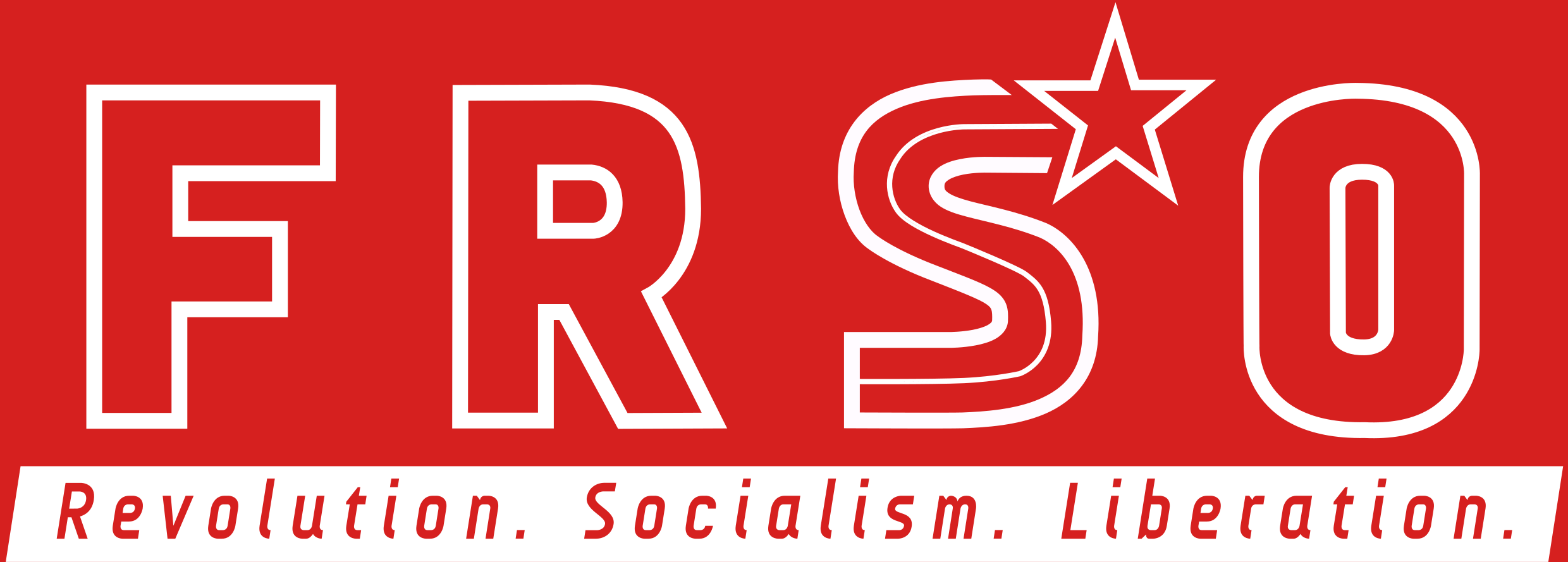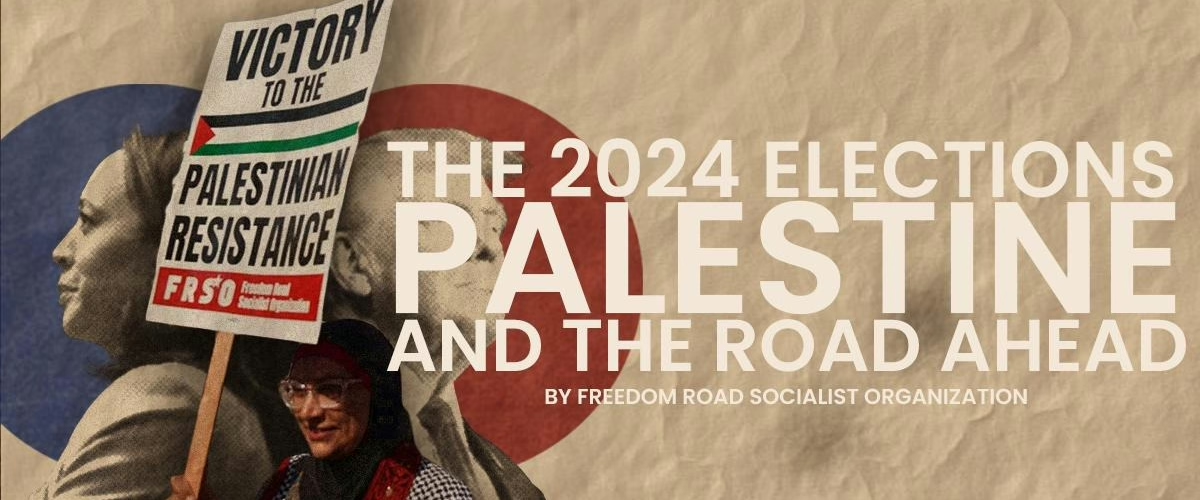The upcoming presidential election is referendum on the U.S.-sponsored genocide in Palestine and the broader war that the U.S. and Israel are waging in the Middle East. The Biden/Harris administration is coordinating the attack on Iran, and the U.S. has dispatched troops and missiles to Israel. There is a minimum of 44,000 dead in Gaza, and Israel is raining 2000-pound bombs down on the cities of Lebanon. While it should go without saying that a reactionary racist like Trump does not deserve a vote, Kamala Harris doesn’t either.
The resistance to Israeli apartheid and the struggle throughout the Middle East to end Western domination is a turning point in world history – it is a key part of a revolutionary process that will bring the U.S. empire to an end. The Palestinian resistance embodies progress and hopes of oppressed people everywhere.
FRSO is a revolutionary organization. We do not believe that we can vote our way to socialism. The rulers of the U.S. have shown that they will resort to violence rather than give up even a small piece of their empire, like Afghanistan. They deployed troops – the National Guard – all over the country during the George Floyd Rebellion. They will never peacefully surrender their wealth, privilege or power.
While elections cannot bring about the rule of the working class (socialism), elections under capitalism are an arena of struggle.
Our electoral line has always been a flexible one that takes a number of criteria into account. We have never favored an abstentionist approach. Instead, we look at the issue from the overall perspective of how we can find the most favorable terrain to fight on and build revolutionary organization.
The four criteria for developing our line on elections in the past have been as follows: One, is a given candidate is a special danger? Two, is the election a referendum on a major social question, such as war or economic crisis? Three, is a campaign contending in an election the embodiment of a national movement, for example, Jesse Jackson in 1984. Four is the issue of whether there is significant political action that is independent of the two major capitalist parties, such as Nader in 2000. While these points serve as benchmarks for looking at what is at stake in any particular election, they are not all equal all the time.
We see this election as a referendum on genocide in Palestine, which is facilitated by Harris and Biden – so we don’t advocate voting for Harris as a way to oppose Trump. We fully understand that on a number of issues there are policy differences between the presidential candidates, for example on labor and reproductive rights. But, given the importance of Palestine in the revolutionary process on an international scale, and the role that Palestine has played in the popular movement in the U.S. – the Palestine issue stands above other factors in determining our views on the election.
It is correct to say that monopoly capitalism has two political parties in this country – the Republican Party and the Democratic Party – and that both parties are in the pockets of the big corporations. That said, it is wrong to say there is no difference of policy between the two. Labor and issues like anti-union “right to work” laws illustrate this. Some of our friends in the trade union movement disagree with us on making Palestine and the growing war in the Middle East a priority, so they tell us we need to support Harris. That is not going to happen, but we can continue to work together on union issues we agree on. And we are going to continue to promote labor for Palestine groups in the trade union movement.
We understand that many progressives are concerned about Trump representing a fascist danger and say the only way forward is to support Harris. We disagree. While there is no doubt that Trump is a racist, reactionary fool, we do not think he will rule by open terror, which is the essence of what fascism is. The specter of a Trump win should not give a pass to the candidate of genocide and war, namely Kamala Harris.
We are not advocating that people boycott the elections. We should not be indifferent to progressive candidates or positive ballot initiatives such as those for reproductive rights. But here is the big takeaway from the 2024 elections: capitalism is a failed system, and its two main political representatives do not deserve our support. Rather, the rotten choices are an indictment of a system that serves the wealthy, and which must be overturned.



